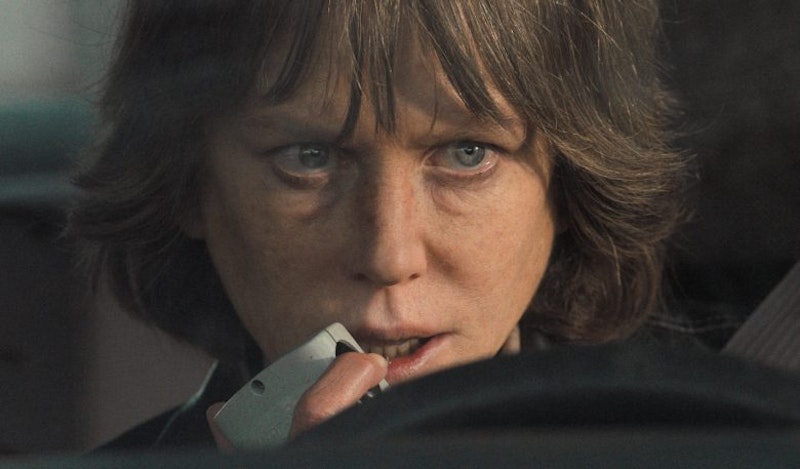Shank of winter and all American film fans have to look forward to are Cold War, Stan & Ollie, Never Look Away, and Jean-Luc Godard’s The Image Book. Well, American film fans that don’t live in New York or Los Angeles. I somehow saw all of the prestige pictures in Baltimore before the end of 2018, a first in the nearly 16 years I’ve lived here. Besides the bummer of Ethan Hawke snubbed for Best Actor in First Reformed (ameliorated somewhat by Paul Schrader’s Original Screenplay nomination, which still wasn’t a given despite serving as a lifetime achievement nod in the eyes of the cloistered and conservative Academy), and the stunning realization that Spike Lee has never been nominated for Best Director before, I’ve no interest in watching or keeping up with the Oscars this year. Roma will clean up not in spite of but because of its blinkered view of class, superficial and shallow “art” moves (wow, it’s in black and white—and two different kinds of Spanish!), and its grotesque stillbirth sequence. Yorgos Lanthimos’ The Favourite also got 10 nominations, heartening if only because this is the guy that made The Killing of a Sacred Deer only a year ago.
But I’m bored, so let’s go to the multiplex: now playing, besides the comic book movies and Disney remakes, are Destroyer, On the Basis of Sex, and Glass, to pick on just a few. I already wrote about the tedious Ruth Bader Ginsburg hagiography On the Basis of Sex, but at least that movie went in a straight line. It moved through decades clumsily, but it didn’t backtrack, flip it, and reverse it like so many movies at the multiplexes and art houses have recently. Hawke’s Blaze biopic was an interminable slog made all the more confusing by its zig-zagging chronology. Everything in Blaze is lit poorly and every timeline looks the same, to the point where you’re watching the alkie singer-songwriter get on the wagon or hop right off.
Destroyer and Glass suffer from the same problem: they move through time, sometimes decades, without any indication beyond different haircuts. Nicole Kidman looks slightly less decrepit in the “past” sections of Destroyer, but I can’t believe they made her look like a zombie and didn’t even give her character a meth addiction. You don’t get that kind of rotting flesh and sleepless nights from too much booze—she looked like a speedfreak in both timelines, but in the past she had bangs. Destroyer is incomprehensible because it moves fluidly between decades without any changes to cinematography, lighting, art direction, or makeup. Add in a typical and unnecessary amount of connections and double reverse crosses, and you get a set of fridge magnets instead of a movie, arranged however you please.
M. Night Shymalan—who I credit for rising out of Hollywood banishment and going full schlock with Blumhouse Studios—delivered a dual sequel to his most recent surprise hit, 2017’s Split, and 2000’s Unbreakable, the movie people usually cite as Shymalan’s “actually pretty good one.” It is, and it looks great—Glass looks like shit, and as Stephen Silver wrote, it’s the first time Shymalan has made a boring movie. I’m not sure I agree, but Glass is surprisingly uninteresting and uneventful for such a cheesy “mashup.” Most of it is in drab fluorescent interiors with the villains imprisoned and chained up. It’s a mess in many ways, but it too suffers from a narrative splintering that isn’t supported by any visual cues or time to separate.
This isn’t Pulp Fiction non-linearity, it’s contiguous jumps in time that, more than anything, make for incredibly confusing movies. Barry Jenkins’ James Baldwin adaptation, If Beale Street Could Talk, has the same flashback structure as the book and Pulp Fiction, with eras and moments clearly delineated and separated by fades to black and appropriate score cues. Destroyer, Blaze, and Glass are already sunk by derivative and boring scripts and structures, but their main problem is confusion—a flashback is a fine device, but it has to be distinguished from the main arc of the movie, and in all three examples, there is no main arc—everything just heaves forward in one disjointed mass, pleasing no one and barely making enough money to break even, if that.
—Follow Nicky Smith on Twitter: @nickyotissmith

